A Brief History of the Origin and Etymology of Italian Surnames
A Brief History of the Origin and Etymology of Italian Surnames
Italian last names were not that common prior to the 15thcentury. The use of surnames began as a result of population growth and to be able to distinguish one family from another. In the early 16thcentury, churches had to register marriage certificates using couples’ first and last names. This was done to stop marriages between relatives.

If you are of Italian descent, it is fun to trace your family lineage to find out how your surname has changed over the centuries. The origin and etymology of Italian surnames come from a variety of sources, including:
First Names of the Head of Household
It was common to choose a child’s surname based on the first name of the head of the household (father). For instance, if the father’s first name was Sebastian, some variation of this with an “o” for the last name or using “di” or “della” in between the first and last names was common. If the child was name Matteo, their surname could be Sebastiano or Matteo della Sebastian.
The Family Trade
Another common method used to create a family surname was to take the name of the family trade. If the head of the household was a physician, then the family surname became Medici, for instance.
The Geographic Region
Italy is compromised of many different regions. It was common for people to use the region name or a variation thereof to create their family surname. Families from Della Casa could have used the same for their surname or a variation of the region.
The Local Dialect
The spelling of surnames was further altered by using local dialects when coming up with the family’s last name. For example, people from the Sardinian region would often add a “u” to the end of the surname, whereas those from Palermo would add “in” or “im” to the beginning of the last name.
The Nickname of the Head of Household
If the head of the household went by a nickname rather than their given first name, it was also common to use the nickname for the family surname. So, if one of your ancestors had blond hair and went by the nickname of Biondi, that could have easily become the family surname.
Translation into English or Other Languages
In cases where your ancestors immigrated to the United States, Canada, or another foreign country, their surname could have been changed when they entered that country. If your last name is Little, and you have Italian ancestors who immigrated, their actual surname could have been Piccolo before leaving Italy.

Changes to Sound Phonetically Correct
Another practice was to alter Italian last names so they sounded phonetically correct in the native language of the country when immigrating. For example, if your last name is Andrea, your ancestors could have had the surname Andrei.
Vowels Were Dropped
Immigrants also had their surnames changed as a result of vowels being dropped, so the surname was shortened. For instance, Sbarbaro could have been changed to Sbaro or Sbarbar.
Due to surname changes over the centuries, and many Italians immigrating to the U.S., Canada, and other countries, your name could have been changed at some point. If you are trying to trace your family lineage to find out if you qualify for dual Italian citizenship, it could be necessary to consider surname changes to find your ancestors.
For help dual Italian citizenship assistance, please feel free to contact the Italian American Citizenship Assistance Program at (305) 812-5512 today! We offer a FREE 30-minute preliminary telephone consultation.

